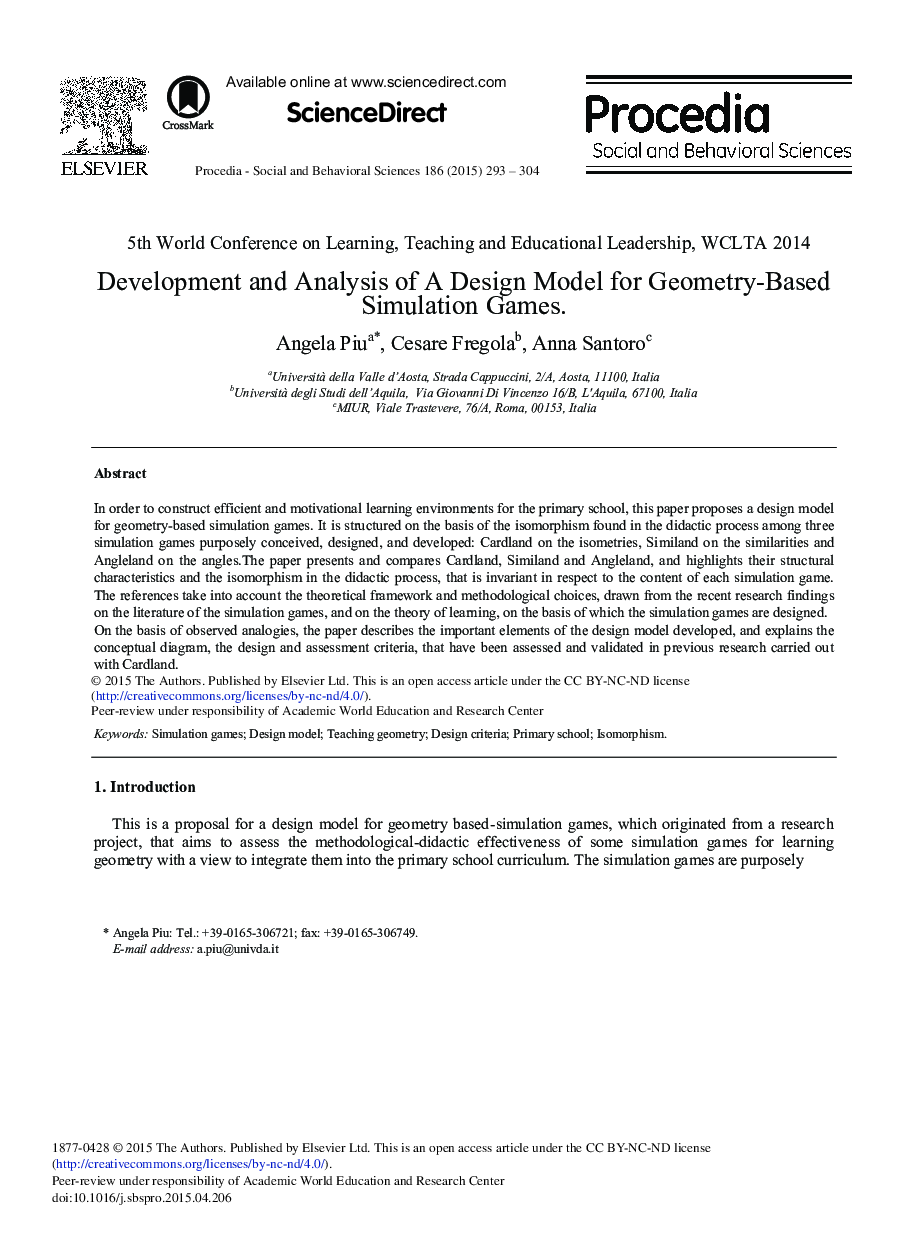| Article ID | Journal | Published Year | Pages | File Type |
|---|---|---|---|---|
| 1110461 | Procedia - Social and Behavioral Sciences | 2015 | 12 Pages |
In order to construct efficient and motivational learning environments for the primary school, this paper proposes a design model for geometry-based simulation games. It is structured on the basis of the isomorphism found in the didactic process among three simulation games purposely conceived, designed, and developed: Cardland on the isometries, Similand on the similarities and Angleland on the angles.The paper presents and compares Cardland, Similand and Angleland, and highlights their structural characteristics and the isomorphism in the didactic process, that is invariant in respect to the content of each simulation game. The references take into account the theoretical framework and methodological choices, drawn from the recent research findings on the literature of the simulation games, and on the theory of learning, on the basis of which the simulation games are designed.On the basis of observed analogies, the paper describes the important elements of the design model developed, and explains the conceptual diagram, the design and assessment criteria, that have been assessed and validated in previous research carried out with Cardland.
